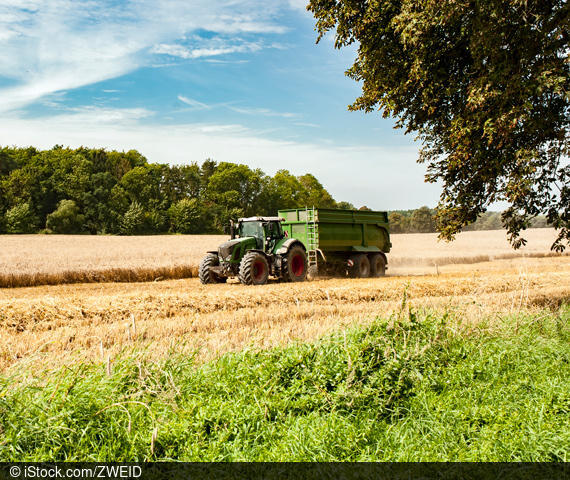EU Funds Should Be Reserved for Farmers’ Verified Commitment to Environmental Protection
ResearchThe European Union is in danger of squandering more than 250 billion euros in farming subsidies in the coming years without getting anything in return in terms of environmental, climate or animal protection. This is the urgent warning from a recent study jointly produced by the Bertelsmann Stiftung and the Centre for European Economic Research (ZEW), Mannheim.
The starting point of the study is the European Commission’s proposal for the Common Agricultural Policy (CAP) in the next Multiannual Financial Framework (MFF) for the years 2021 to 2027. Under this proposal, over these seven years a total of 265 billion euros will go straight into the pockets of European farmers in the form of direct payments. This means that more than a third of total available funds in the EU budget are earmarked for agriculture and are therefore not available for other purposes.
According to the authors, Professor Friedrich Heinemann, head of the ZEW Research Department “Corporate Taxation and Public Finance”, and Stefani Weiss, senior expert at the Bertelsmann Stiftung, these direct payments to agricultural holdings cannot be justified from a social policy perspective. There is no form of means testing for the distribution of these funds and the amount farmers receive is calculated according to the area of their land used for agricultural purposes. As a result, the policy is in its very approach not suited for providing targeted support for the farmers in greatest need.
A different, much more important approach used to justify income support for EU farmers is to compensate farmers with payments from the EU in exchange for taking steps to protect the environment and to improve animal welfare. Seen this way, the CAP payments would serve as a reward for farmers for providing these public goods. However, the study argues that EU agricultural policy with its current focus does not provide any notable incentives encouraging environmentally sustainable farming or better protection of animals.
“The current ecological requirements farmers have to meet to receive the direct payments merely serve as an alibi for the EU to legitimise these large subsidies without actually changing agricultural production methods,” says Stefani Weiss in her assessment.
“There should be a clear value-for-money logic in direct payments to farmers”
In light of these sobering findings, the study presents two main policy recommendations to turn the direct payments into a true form of compensation for the provision of European public goods. Firstly, the “eco-schemes” sketched out by the European Commission in its reform package ought to be given greater priority and further fleshed out over the course of the upcoming negotiations. According to the authors of the study, the basic idea behind these regulations – that farmers should receive money for going above and beyond the legal minimum standard for environmental and animal protection – is the right one. “There should be a clear value-for-money logic when making direct payments to farmers. Farmers should only receive this money if they can provide evidence that their performance in protecting the environment or promote animal welfare is above the legal minimum standards,” recommends Friedrich Heinemann.
Secondly, according to both authors, there should be mandatory requirements for all Member States regarding the share of direct payments going towards the eco-schemes. The study strongly rejects the Commission’s proposal that Member States make these decisions voluntarily. Making such commitments to environmental protection voluntary will lead to a “race to the bottom” in terms of environmental standards. Specifically, Heinemann and Weiss recommend that Member States be required to spend at least 50 per cent of their direct payments from the EU on eco-schemes.
The authors are also sceptical of the Commission’s promise that the new CAP will be simpler and lead to less bureaucracy. Given that in the future the direct payments need to serve as a reward for farmers for providing certain public goods, recipients will be required to provide watertight evidence that they have implemented the necessary measures. This will be impossible without some kind of paper trail. “All subcontractors must be able to provide the government with thorough documentation proving they have provided the services claimed before their invoice can be paid. This shouldn’t be any different for farmers,” says Stefani Weiss, explaining why detailed reporting requirements are necessary. “The desire to make these payments simpler is ultimately a desire to receive money without having to do anything in return. The CAP cannot continue this way in the future,” says Friedrich Heinemann.
For further information please contact
Prof. Dr. Friedrich Heinemann, Phone +49 (0)621/1235-149, E-mail friedrich.heinemann@zew.de
